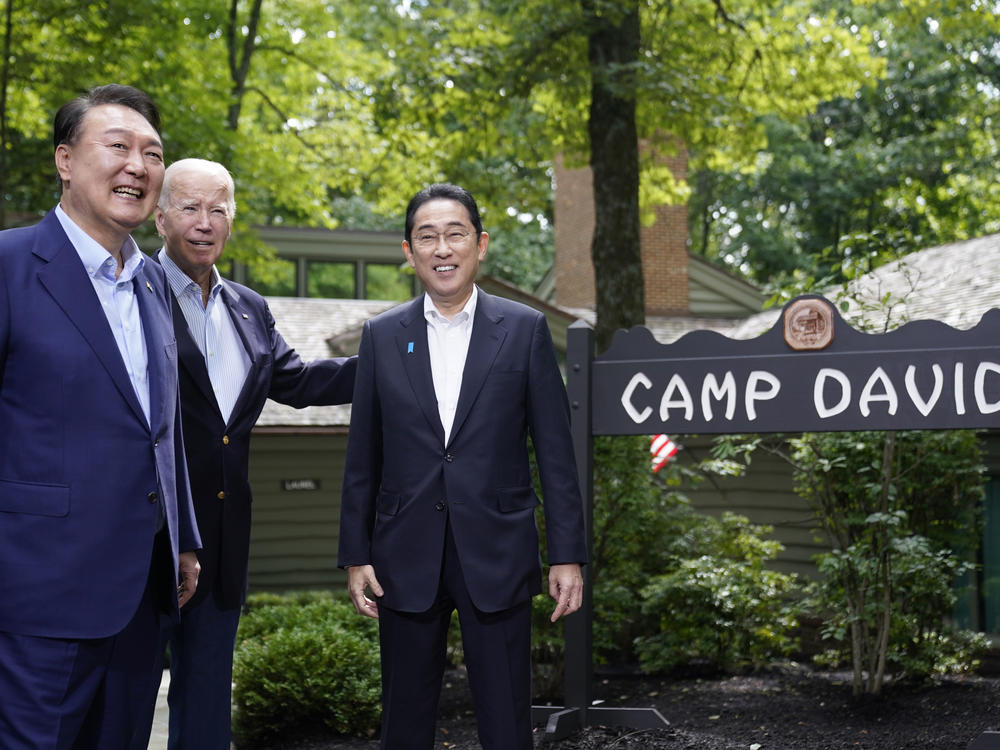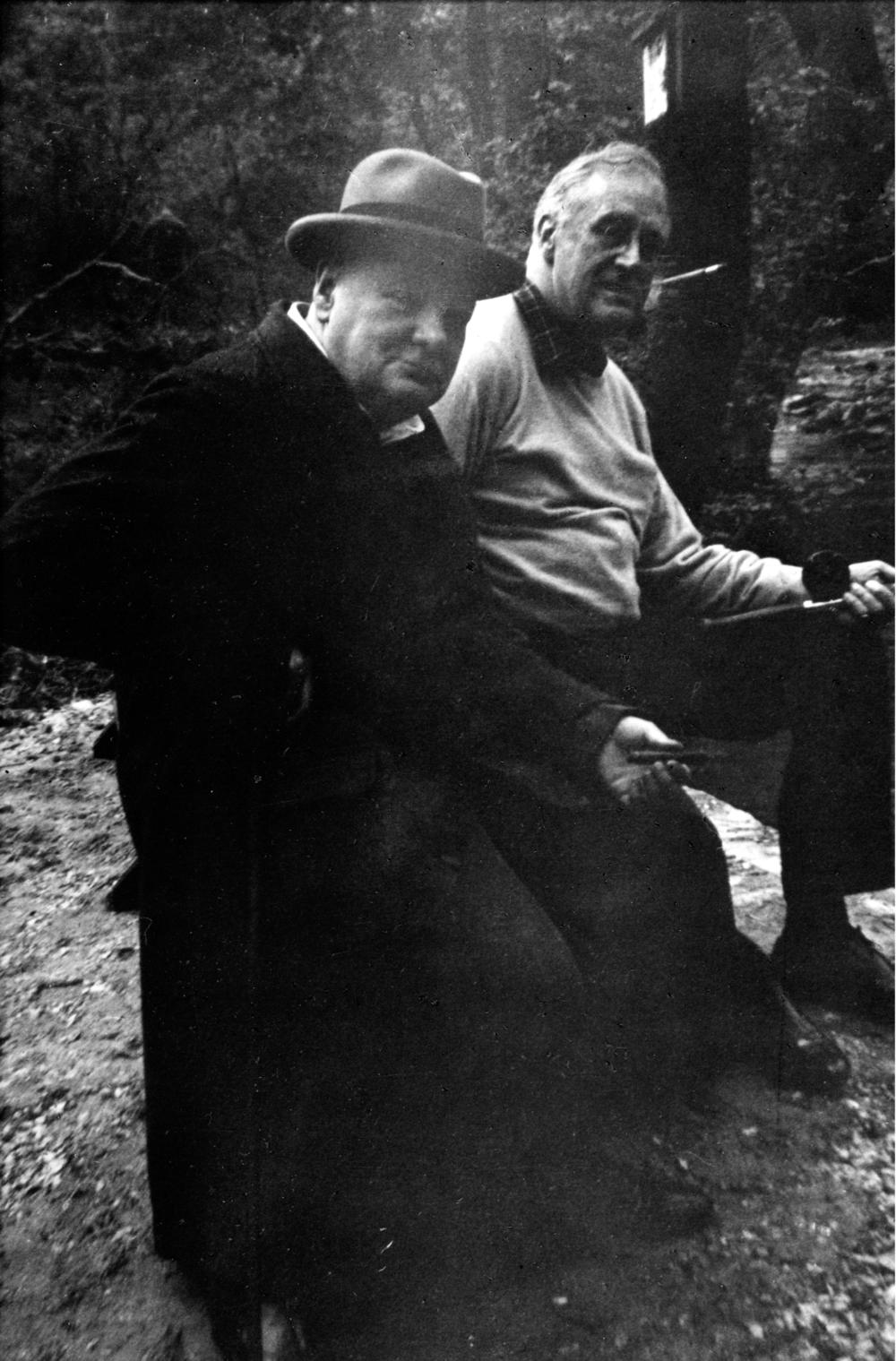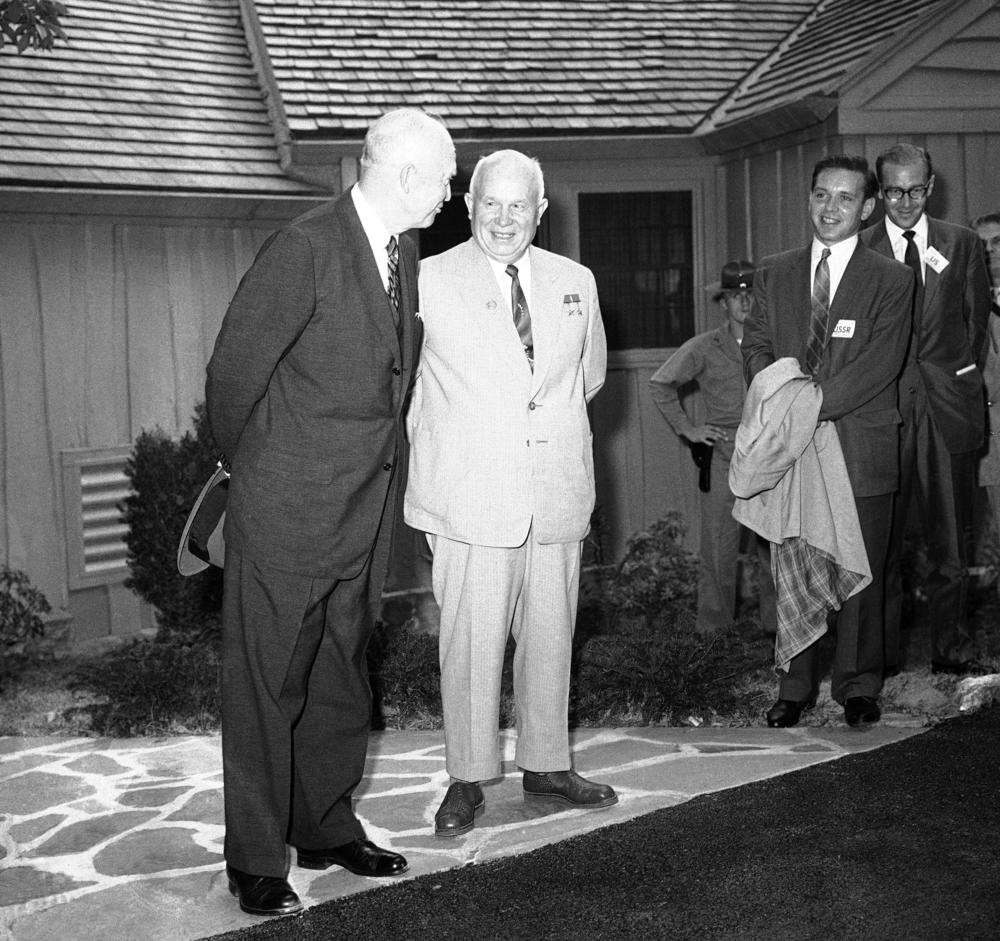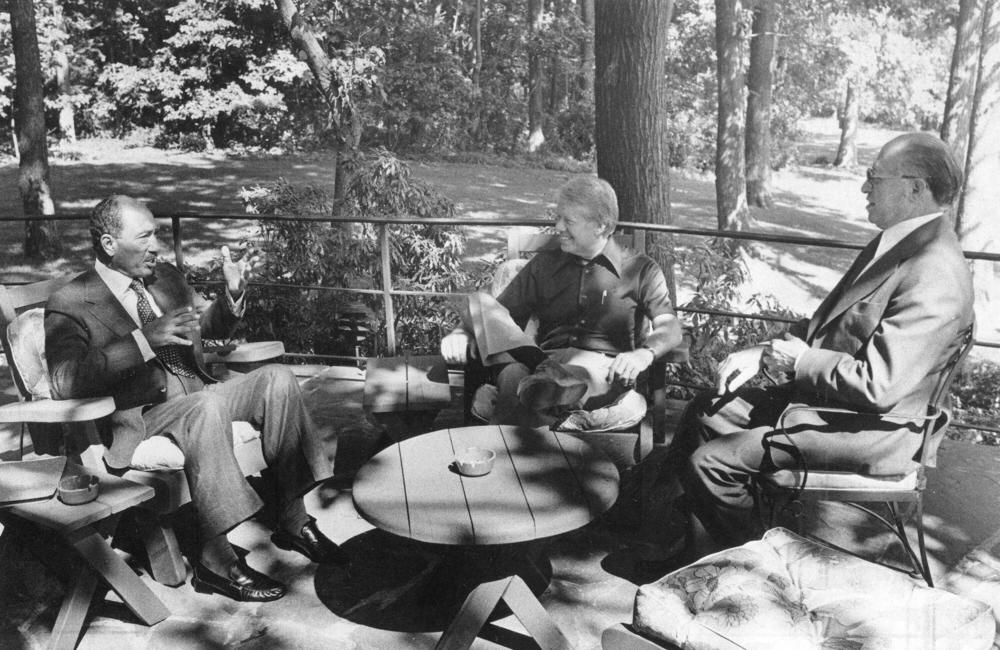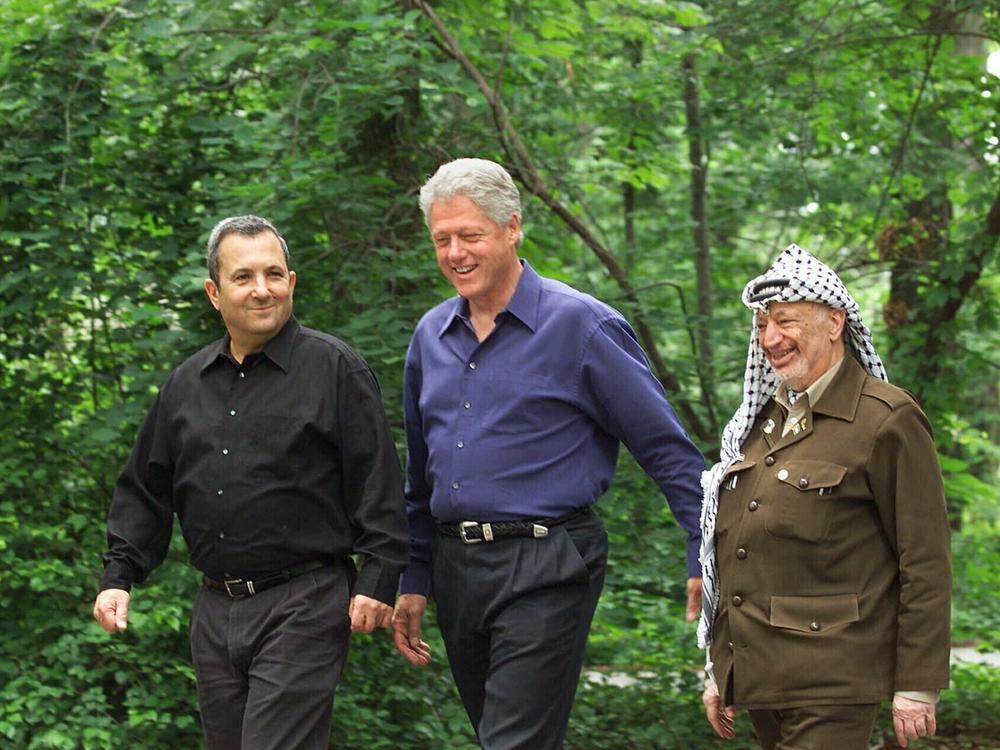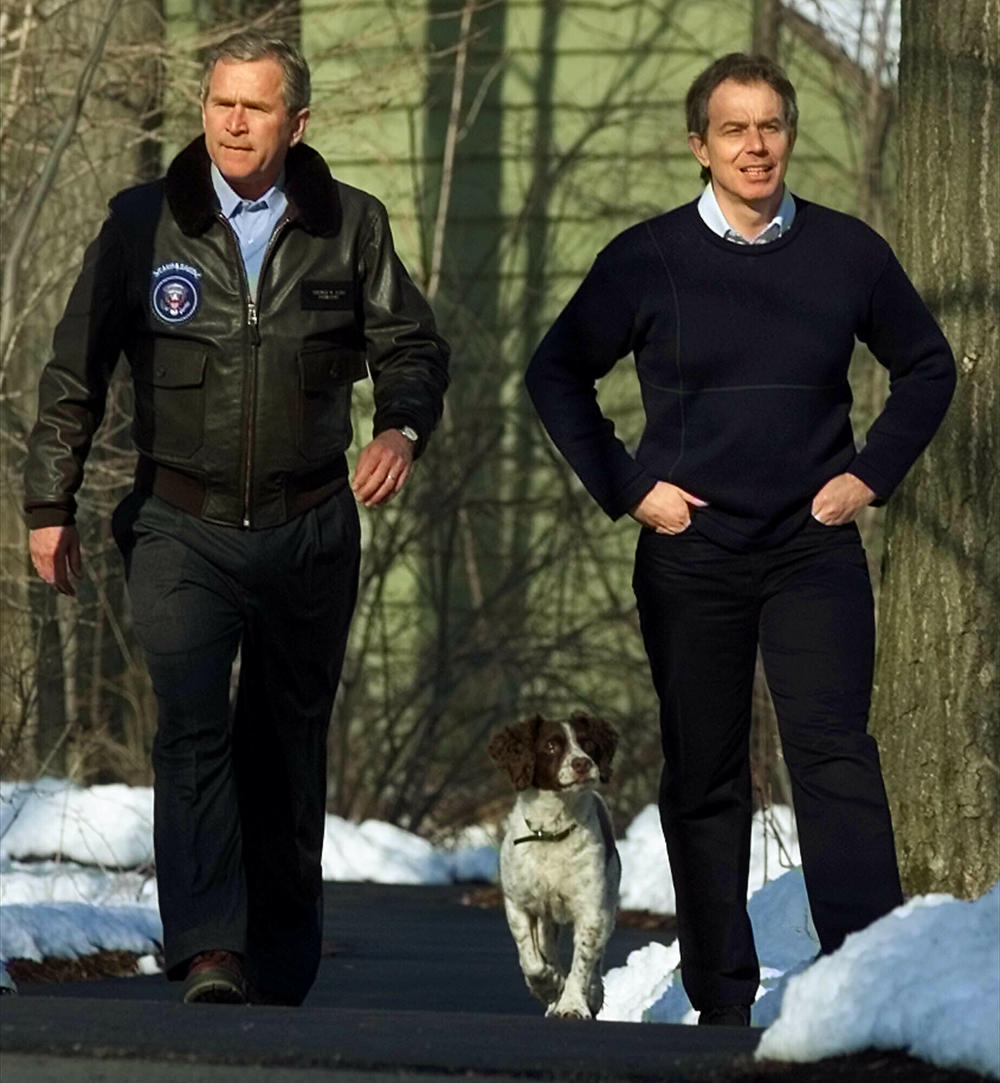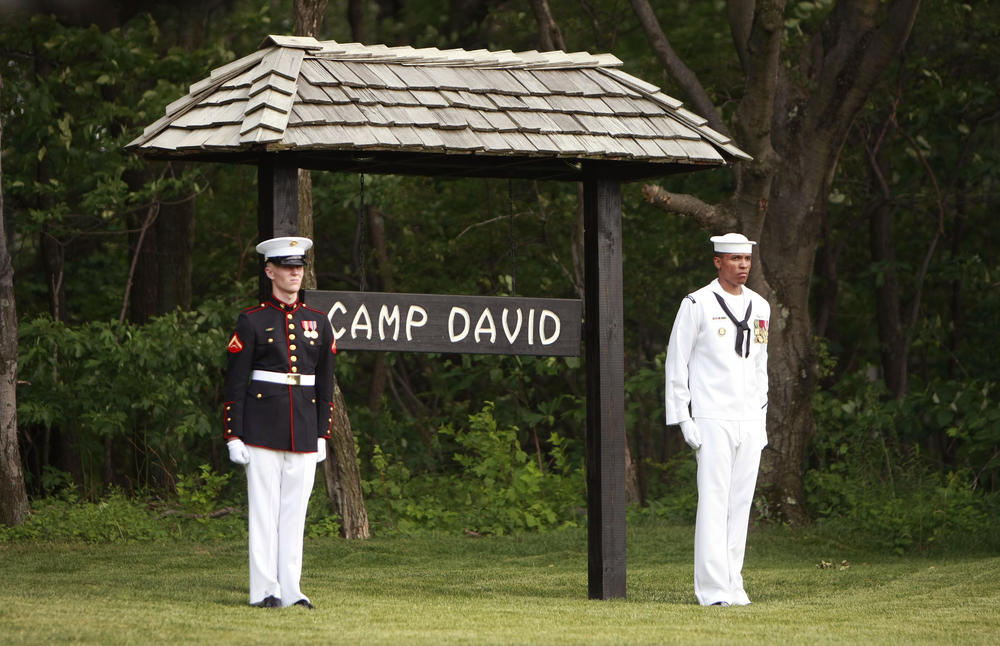Section Branding
Header Content
How Biden is using Camp David to elevate a summit with Japan and South Korea
Primary Content
Updated August 18, 2023 at 11:54 AM ET
President Biden is hosting the leaders of Japan and South Korea at Camp David, the presidential retreat in the woods of Maryland that occupies a storied place in American diplomacy.
The three nations have never held a stand-alone summit like this. Japan and South Korea have had decades of disagreements dating back to Japan's occupation of Korea in the early 20th century.
But the relationship between Seoul and Tokyo has been improving, and Biden is eager to strengthen U.S. ties with both countries as part of his broader push to counter China's influence in the region.
On Friday, he is meeting with Japanese Prime Minister Fumio Kishida and South Korean President Yoon Suk Yeol to announce something they're calling the Camp David Principles.
The three leaders plan to to strengthen security cooperation and announce more comprehensive, long-range military exercises, a new hotline to use during crises – as well as a commitment to consult each other on security issues of concern. This agreement recognizes that challenges to one country affects the security of all three partners.
The leaders pledge their three countries will continue to meet annually. And the White House hopes that by deepening the trilateral relationship, it will endure even when political leadership changes or domestic attitudes shift.
An invitation to Camp David is a rare gift
Biden is hosting the meeting at Camp David to demonstrate that the three countries have reached a new stage in their relationship.
"We're opening a new era, and we're making sure that era has staying power," Biden's national security adviser Jake Sullivan told reporters on Friday.
A visit to Camp David is much rarer than an invitation to the White House, noted Jeffrey Hornung, senior political scientist at the RAND Corporation who specializes in Japan and Indo-Pacific diplomacy.
"The symbolism of Camp David is important because the leaders of Japan and South Korea know that this is something special, you need to be invited, the president only does this on certain occasions," Hornung said.
Camp David has a special place in U.S. diplomacy
The rustic presidential retreat is some 60 miles away from the pressure cooker of Washington, comprising about 140 acres within an isolated, hilly forest.
President Franklin D. Roosevelt was the first to use it as a place to deepen foreign ties when he invited British Prime Minister Winston Churchill for talks in the midst of World War II.
"In 1943, Churchill visited, and he and Roosevelt spent a great deal of time out in the woods, fishing, talking, and really that was when they mapped out what the future of the world would look like at the end of the war," said Alison Mann, a historian at the National Museum of American Diplomacy at the State Department.
At the time, Roosevelt called the retreat Shangri-la. But when Dwight Eisenhower came into office, he renamed it. "He thought Shangri-la was too fancy of a name for a Kansas farm boy," Mann said.
Eisenhower added picnic tables, outdoor barbecues, and even a bomb shelter.
And in 1959, during the Cold War, he invited Soviet Premier Nikita Khrushchev there for talks.
"The objective that Eisenhower had in inviting Khrushchev specifically to Camp David was to use the beautiful scenery and a more relaxed atmosphere to really get to know Khrushchev," Mann said.
In 1978, then-President Jimmy Carter invited the leaders of Israel and Egypt to the camp to broker a peace deal after decades of violence and war.
The Camp David Accords — as they came to be known — cemented this wooded cabin site as a place to forge friendships with foreign leaders.
There are few distractions at Camp David
Michael Giorgione is one of the few people who has lived at Camp David year-round, when he was the former naval commanding officer there from 1999 to 2001.
Giorgione, who wrote a book about his experiences called "Inside Camp David," was there when former President Bill Clinton brought Israeli Prime Minister Ehud Barak and Palestinian Authority Chairman Yasser Arafat to the retreat for two weeks of talks in July 2000. He recalled seeing Clinton shuttle between the leaders' cabins late at night, trying but ultimately failing to broker a peace deal.
When George W. Bush took office the following year, Giorgione said he quickly invited British Prime Minister Tony Blair to Camp David to try to break the ice with a leader who had been close to Clinton.
"There's no one there unless it's the president or the staff who's invited. And it's just incredibly quiet and peaceful. And I think that's what lends itself to the diplomatic tone you can achieve here, where people can sit down and not be distracted and just talk," Giorgione said in an interview.
"It's like bringing someone in your family room," he said.
But for the last eight years, no world leader has been invited to this family room. Camp David's role in diplomacy was sidelined during the Trump administration, when former President Donald Trump used his own properties for events.
In 2019, Trump disclosed that he had planned secret talks at Camp David between then Afghan President Ashraf Ghani and major Taliban leaders, only to abruptly cancel the meeting.
NPR's Leigh Walden contributed to this report.
Copyright 2023 NPR. To see more, visit https://www.npr.org.
